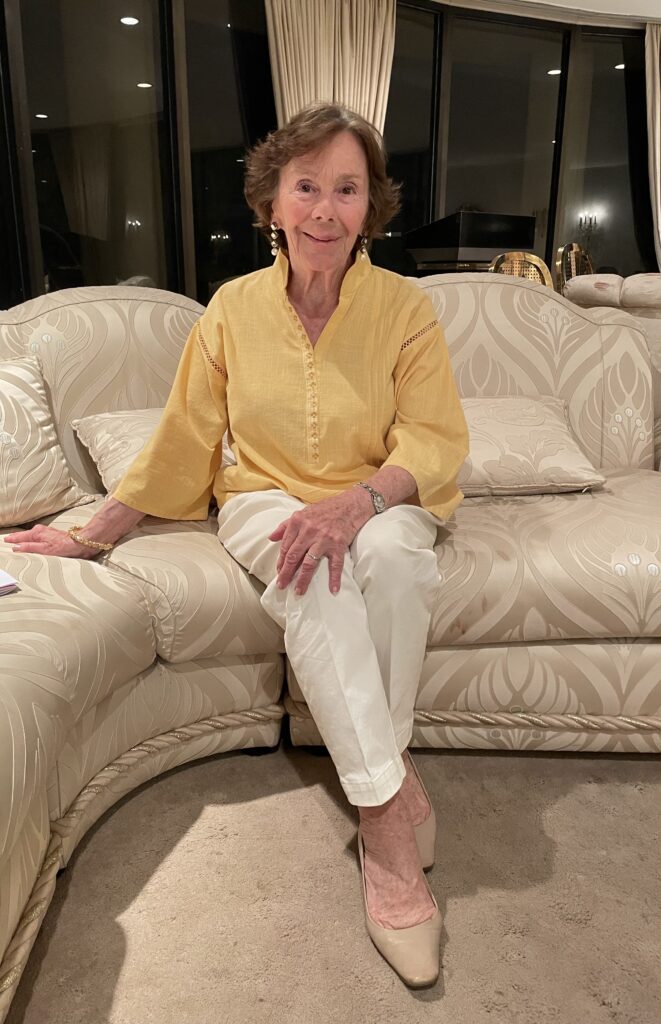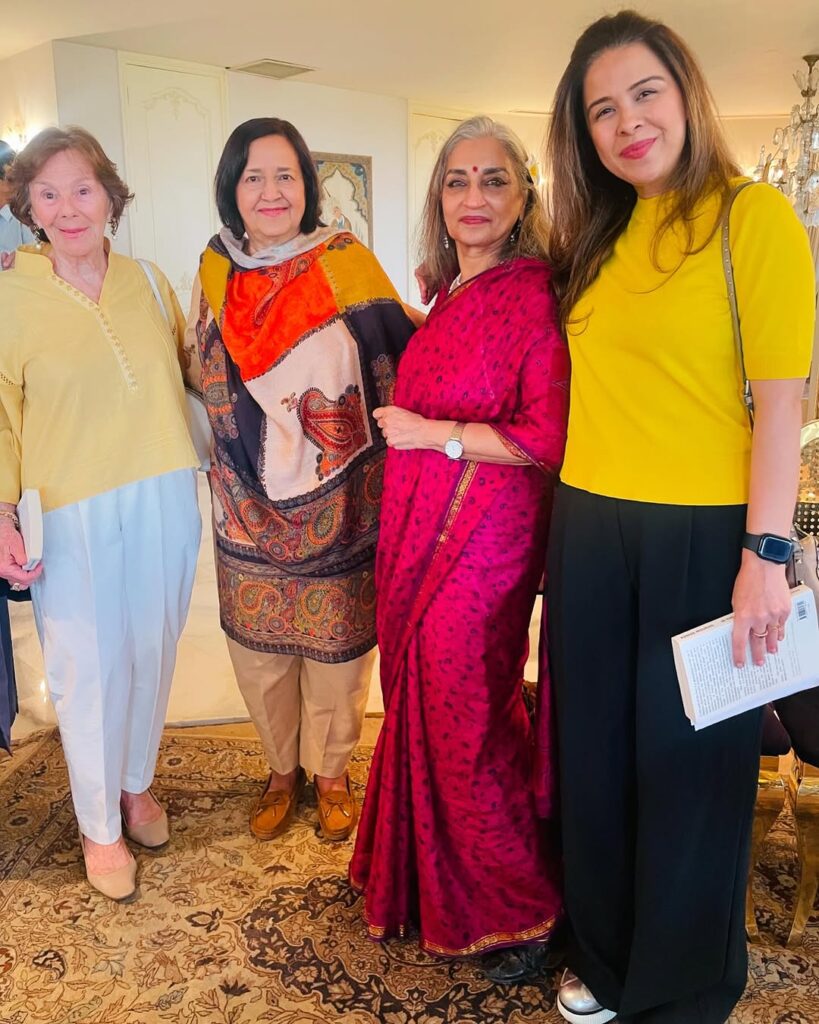Uncategorized
Kenize Mourad: Unveiling the Truth
By Ayman Munaf

In the literary world, few authors bring the depth of cultural, historical, and geopolitical insight that Kenize Mourad does. Born in Paris to a Turkish mother, Sema Sultan, and an Indian father, the Raja of Kotwara, Mourad’s life has been anything but conventional. Her latest novel ‘In the Land of the Pure’ is a gripping geopolitical thriller set in Pakistan—one that shatters Western misconceptions and presents the country in all its complexity.
A life shaped by borders and conflicts Mourad’s life story reads like an epic novel in itself. Born during World War II, she lost her mother at a very young age and was raised in a French Catholic convent, unaware of her Muslim heritage. “When I finally reconnected with my father at 21, I was introduced to Lucknow’s deeply traditional world, living in purdah—a stark contrast to my upbringing.” However, it was in Karachi, Pakistan, in the 1960s, where she found freedom, joy, and an entirely different side of South Asia.
“I found Karachi to be a vibrant, dynamic place—completely different from the rigid, narrow portrayal the West had of Pakistan,” Mourad recalled at her book launch event held recently. The city’s bustling art scene, literary circles and progressive social life at that time stood in contrast to the stereotypes that Western media perpetuated. This early experience laid the foundation for her lifelong mission: challenging misconceptions about the Muslim world.
Before becoming a novelist, Mourad had a remarkable career as a journalist in France. She worked in Le Nouvel Observateur newspaper, covering some of the most defining conflicts of the 20th century—the Indo-Pak War of 1971, the Lebanese Civil War, the Iranian Revolution and the Israel-Palestine conflict. Reporting from the frontlines, she saw firsthand the devastating effects of war and propaganda.
Her transition from journalism to fiction was a natural one. “As a journalist, you must capture attention immediately. There’s no room for long, drawn-out descriptions,” she emphasised. This precision is evident in ‘In the Land of the Pure’, which plunges the reader straight into the action, refusing to waste time with slow build-ups.
Her writing is shaped by her journalistic rigour, drawing from real-life interviews, firsthand experiences, and historical research. “When I wrote ‘Regards From the Dead Princess’, I had to research four countries, four different time periods, and dive into archives. I could never have done that without my background in journalism.”
One of the most striking takeaways from Mourad’s talk was her candid discussion of Western prejudice against the Muslim world, the west’s misconceptions and her censorship battles. “Forty years ago, there was less prejudice than today,” she notes. “Now, everything is blamed on immigrants. France would not function without them, yet Muslim has become a dirty word.”
Mourad has faced severe backlash for her views. After publishing ‘Our Sacred Land: Voices of the Palestine-Israel Conflict’, she was blacklisted in France, losing media coverage and publishing support. “French journalists told my publisher, ‘We don’t open books by Kenize Mourad anymore,’” she revealed. Despite this, she refuses to compromise on her integrity. “I could write something favourable about Israel and have a dozen interviews lined up—but I won’t. One must have a sense of morality.”
Mourad writes about Pakistan with empathy unlike many Western narratives that reduce Pakistan to a land of extremism, her ‘In the Land of the Pure’ paints a rich, layered portrait of the country. From Lahore’s Basant festival to the activism of women like Parveen Rehman and Sheema Kirmani, she showcases the vibrancy and resilience of Pakistani society.
“I love Pakistan,” she said simply. “I wanted to present it as I know it—diverse, modern, and full of life, not the black-and-white version the West believes in.”
Her women characters, from the intrepid Begum to the fiery activist Samia, are drawn from real-life figures she has encountered—women who, despite facing oppression, continue to fight for change.
At a time when geopolitical biases are stronger than ever, ‘In the Land of the Pure’ serves as a much-needed antidote—a book that compels the world to look beyond fear and propaganda, and see Pakistan for what it truly is: a land of history, culture, struggle and resilience.

Kenize Mourad Unveils “In the Land of the Pure”
French author and journalist Kenize Mourad launched her latest novel, ‘In the Land of the Pure,’ at an exclusive literary gathering hosted by Mr. Farooq Hasan at his residence in DHA, Karachi. The event, organized by Lightstone Publishers, brought together literature enthusiasts, journalists, and intellectuals from different walks of life for an evening of engaging discussions.
The event commenced with a warm welcome by Mr. Farooq Hasan and an introduction by Ameena Saiyid, Managing Director of Lightstone Publishers. The highlight of the evening was an insightful conversation between Kenize Mourad and Ruby Haider, in which Mourad shared her inspiration behind ‘In the Land of the Pure,’ a geopolitical thriller set in Pakistan that explores the nation’s complexities through the lens of a French journalist investigating the country’s intelligence networks and strategic alliances.
The discussion was followed by an evocative reading from the novel by Shayma Saiyid, captivating the audience with its gripping narrative. A lively Q&A session allowed attendees to engage with Mourad, delving deeper into themes of political intrigue, cultural identity, and the blurred lines between fiction and reality.
The evening concluded with a book signing session where guests had the opportunity to interact with the esteemed author and get their copies of the book personally signed. Kenize, whose literary works are known for their deep historical and political insights, expressed her admiration for Pakistan.
